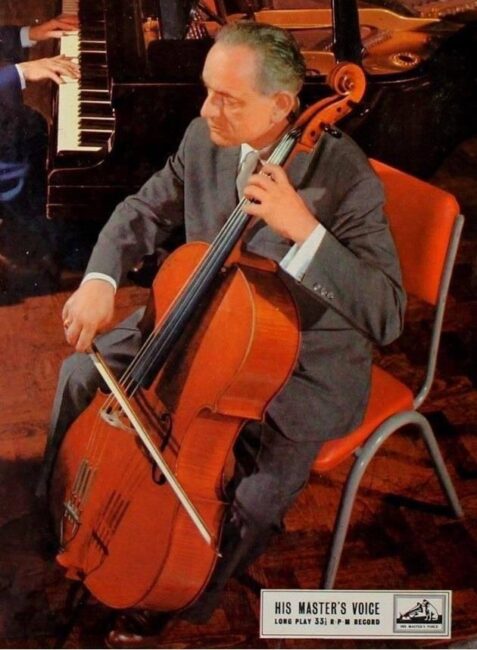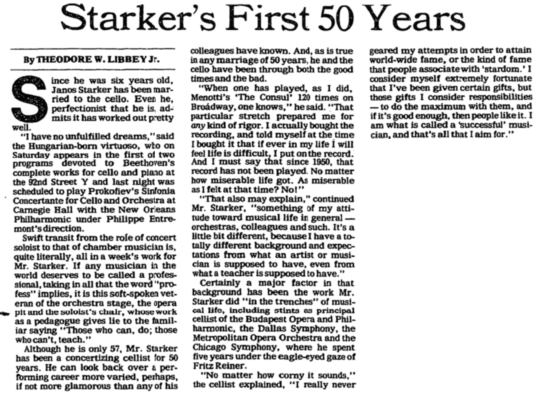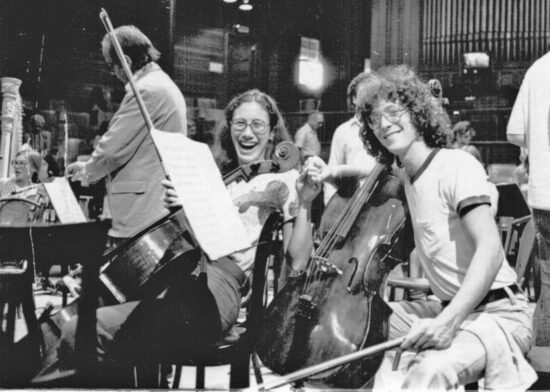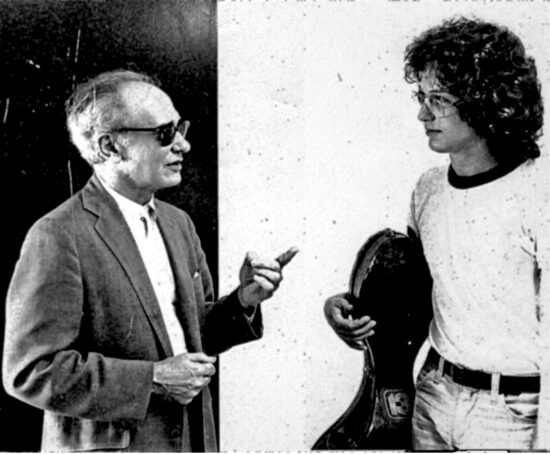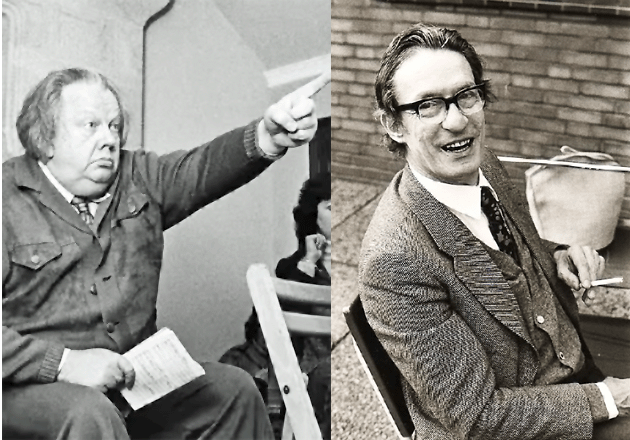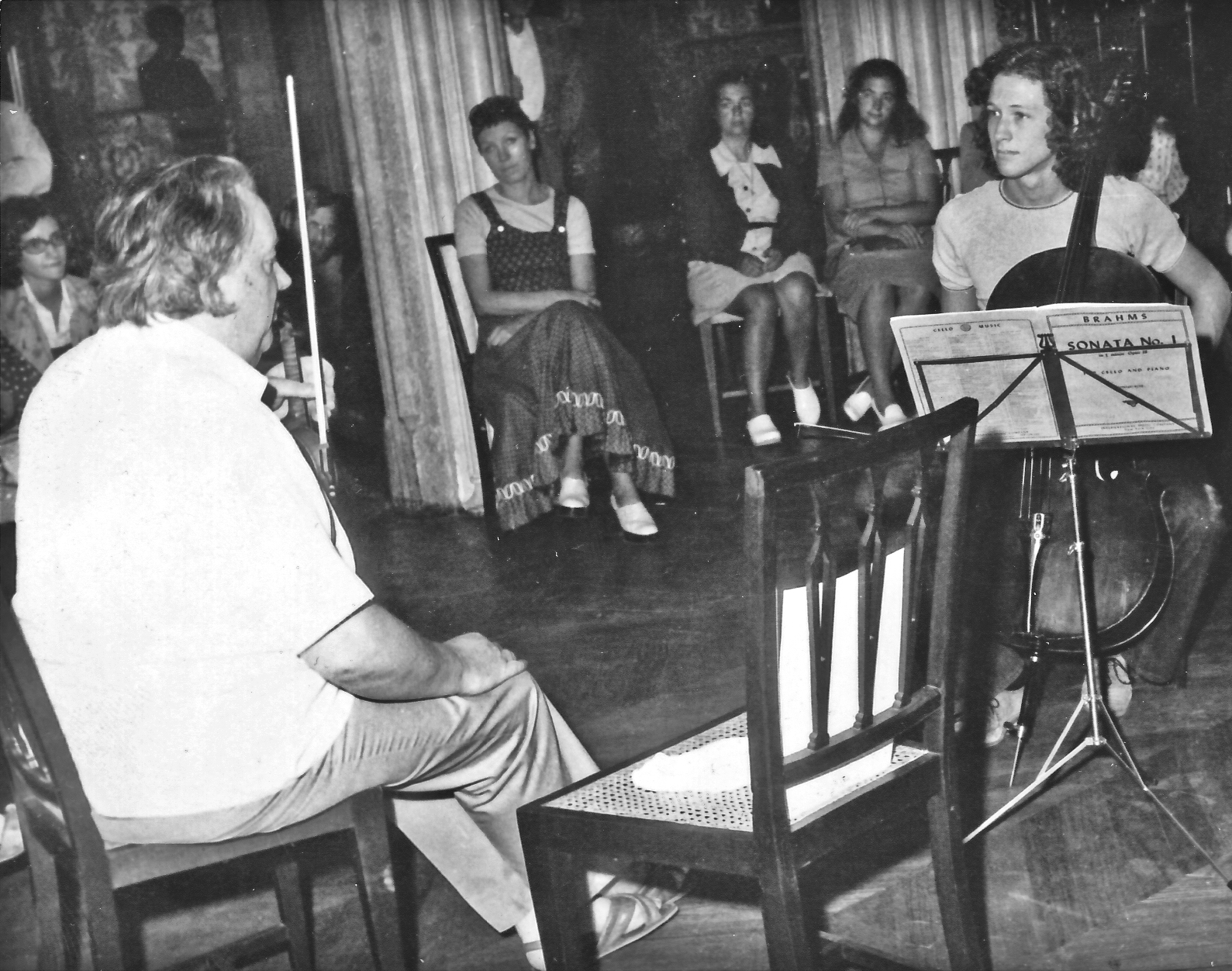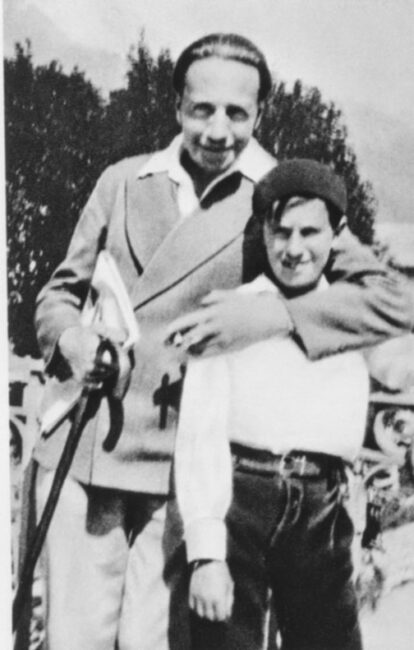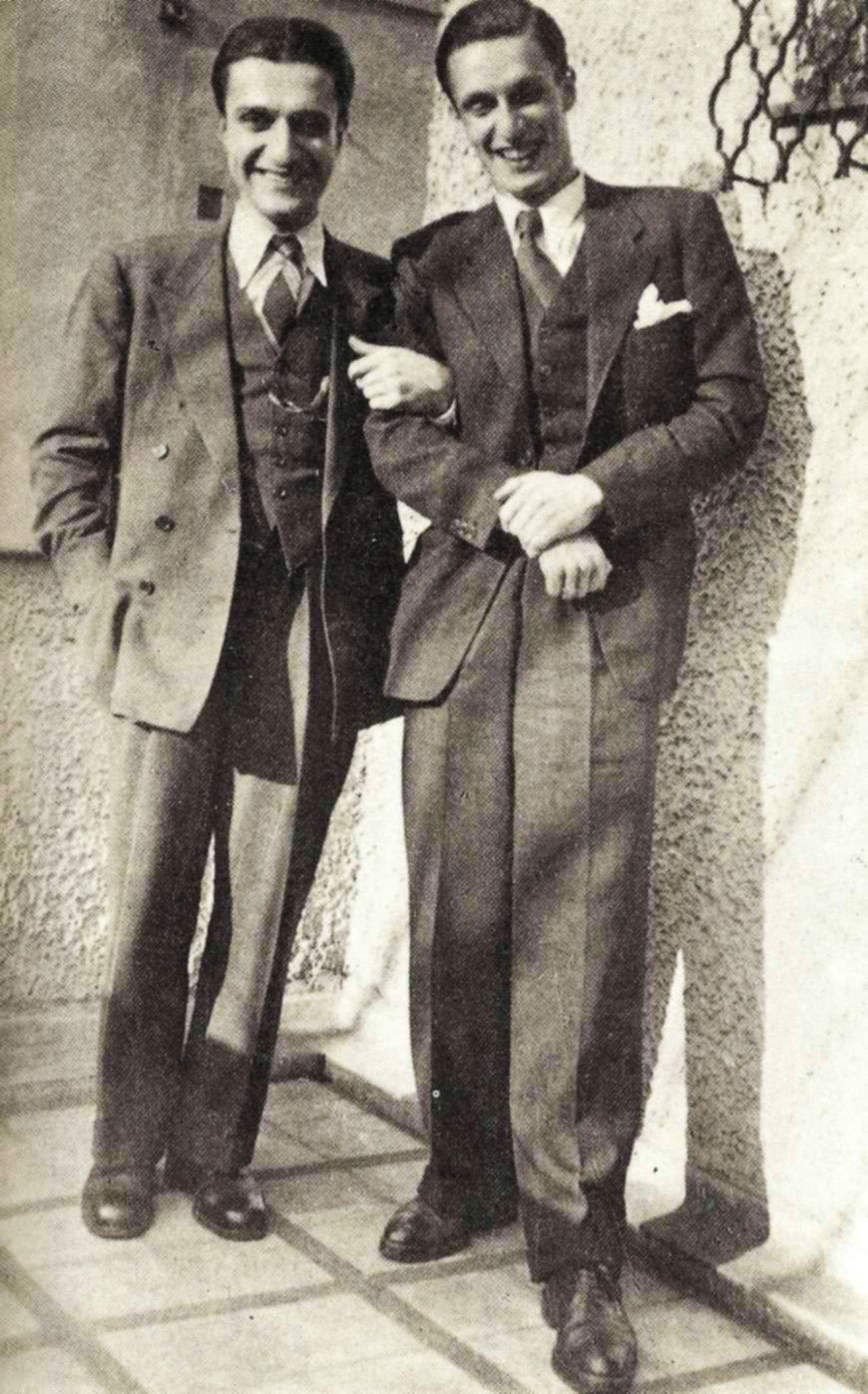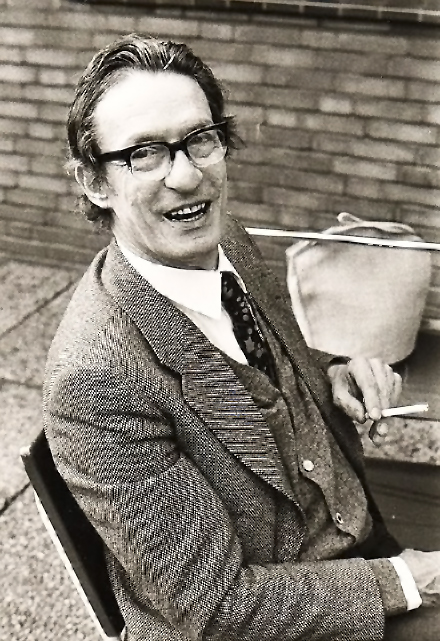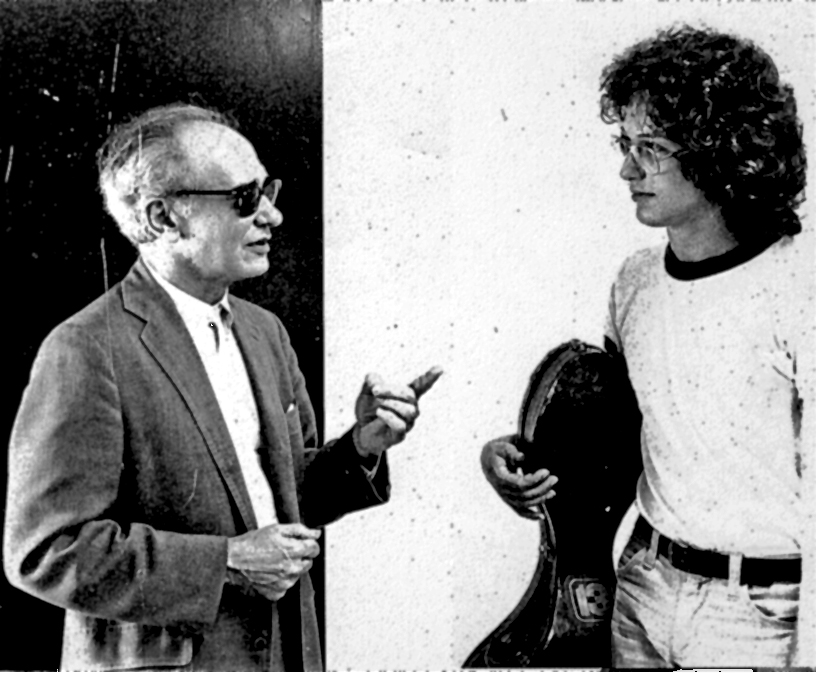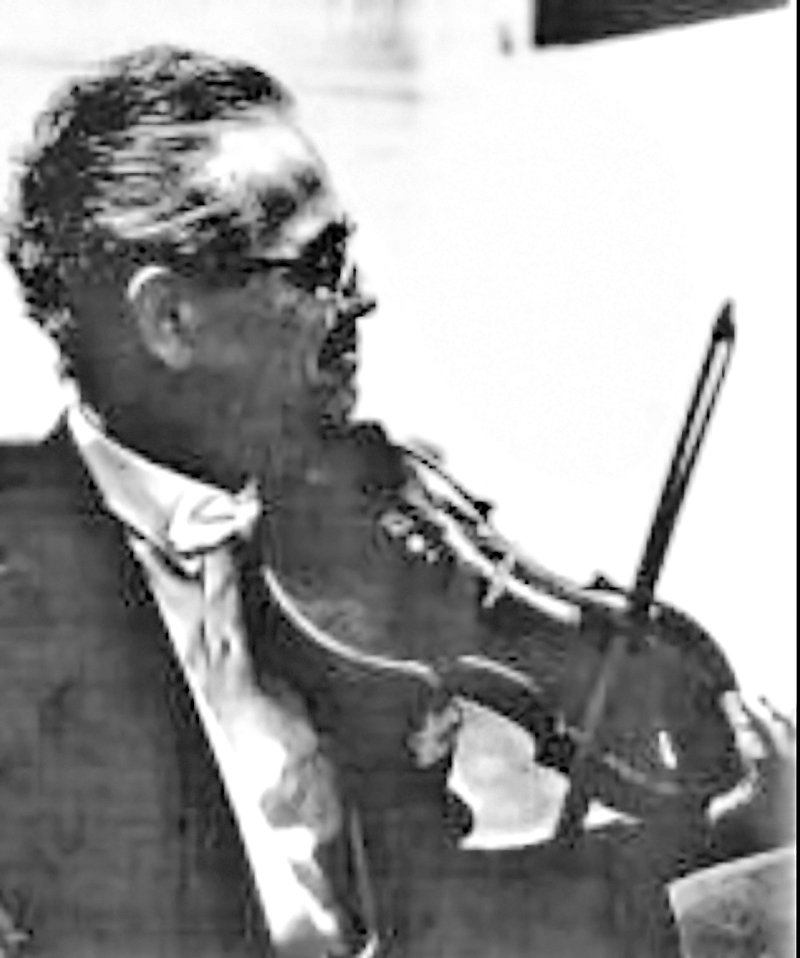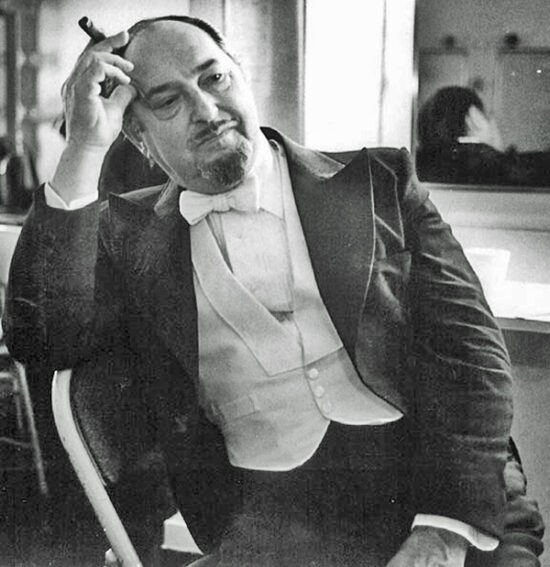The cellist in this scene (also the composer of the tunes in the club scenes) was Fred Katz, with Chico Hamilton’s group. The rest of the soundtrack is basically a cello concerto by Elmer Bernstein played by Eleanor Aller, whose father played in the NY Phil under Mahler and whose sons include Fred Zlotkin (the late principal cellist of NYC Ballet) and the conductor Leonard Slatkin. She was also the cello soloist for the soundtrack of the Cello Concerto (actually by Korngold) for the film Deception (which features the greatest “fake” cello playing by an actor I’ve ever seen, Paul Henreid with the assistance of 2 cellists for the close up scenes one for each hand!).
https://www.youtube.com/results?search_query=fred+katz+cello
David Baker
Innovative composer /arranger and cellist
A member of the Jacobs School of Music faculty since 1966, he founded the Jazz Studies program and served as its chair from 1968 to 2013.
“The Jacobs School and the profession will be eternally indebted to David for what he built, guided and codified,” said Jacobs Dean Gwyn Richards. “He was a distinguished and cherished professor who built our jazz program from the ground up and, through it, influenced generations of artist-teachers. David Baker was the ‘B’ in the ABC of international jazz education: Aebersold (Jamey), Baker and Coker (Jerry). Beloved by colleagues, students and the public, he brought people to his art and, once there, moved and inspired them though his composition, performance and teaching. He is, was and always will be a towering figure in our field.”
“It is almost impossible to comprehend the scope of David’s work and impact as a performer, teacher, composer, band leader and arts advocate,” said Tom Walsh, chair of the Jacobs Jazz Studies Department. “Over the last 50 years, David Baker inspired thousands of music students, educators and musicians. His influence permeates the teaching of jazz music around the globe. David was a brilliant person who was a joy to be around. His humor, his care for people and his great desire to share his knowledge and experience made him a magnet. The encouragement he gave his students gave them the feeling that they could go into the world and do great things. And they did!”
David Nathaniel Baker Jr. was born Dec. 21, 1931, in Indianapolis. He graduated from Crispus Attucks High School in Indianapolis before attending Indiana University, earning a Bachelor of Music Education degree in 1953 and a Master of Music Education degree in 1954. He studied with a wide range of master teachers, performers and composers, including Thomas Beversdorf, Bobby Brookmeyer, Bernhard Heiden, J.J. Johnson, George Russell, William Russo, Gunther Schuller and Janos Starker. Originally a gifted trombonist, he switched to the cello after sustaining jaw injuries in a car accident.
He began his teaching career at Missouri’s Lincoln University in 1955.
Baker was a regular on the thriving Indianapolis jazz scene of the era — especially on its historic Indiana Avenue — with the likes of fellow jazz giants Jimmy Coe, Slide Hampton, Freddie Hubbard, J.J. Johnson, Wes Montgomery, Larry Ridley and David Young. They are all included in the “Jazz Masters of Indiana Avenue” mural on Capitol Avenue in Indianapolis.
He was a member of the Quincy Jones Big Band during its 1960 European tour, beginning a lifelong friendship with the music icon.
Top in his field in several disciplines, Baker taught and performed throughout the United States, Canada, Europe, Scandinavia, Australia, New Zealand and Japan. He co-founded the Smithsonian Jazz Masterworks Orchestra and served as its conductor and musical and artistic director from 1990 to 2012, becoming maestro emeritus on Dec. 1, 2012.
A 1973 Pulitzer Prize nominee, Baker was nominated for a Grammy Award in 1979 and honored three times by DownBeat magazine: as a trombonist, for lifetime achievement and as the third inductee into its Jazz Education Hall of Fame. He received numerous awards, including the National Association of Jazz Educators Hall of Fame Award (1981), IU President’s Award for Distinguished Teaching (1986), Arts Midwest Jazz Masters Award (1990), Governor’s Arts Award of the State of Indiana (1991), American Jazz Masters Award from the National Endowment for the Arts (2000), Indiana Historical Society’s Living Legend Award (2001), James Smithson Medal from the Smithsonian Institution (2002), Emmy Award for his musical score for the PBS documentary “For Gold and Glory” (2003), Living Jazz Legend Award from the John F. Kennedy Center for the Performing Arts (2007), Sagamore of the Wabash (2011), IU President’s Medal for Excellence (2012), Satchmo Award from the Louis Armstrong Educational Foundation (2014), City of Bloomington Black History Month Living Legend Award (2015) and five honorary doctorates, including from Oberlin College (2004) and New England Conservatory (2006).
As a composer, Baker was commissioned by more than 100 individuals and ensembles, including Josef Gingold, Harvey Phillips, Ruggiero Ricci, Janos Starker, Beaux Arts Trio, New York Philharmonic, St. Paul Chamber Orchestra, Fisk Jubilee Singers, Louisville Orchestra, Ohio Chamber Orchestra, Audubon String Quartet and International Horn Society. His compositions, tallying more than 2,000 in number, range from jazz pieces and symphonic works to chamber music and film scores.
A dedicated music educator as well as composer and performer, Baker was involved in numerous music organizations. This included membership on the National Council on the Arts; board positions for the American Symphony Orchestra League, Chamber Music America, Arts Midwest and the Afro-American Bicentennial Hall of Fame/Museum; and past chairmanships of the Jazz Advisory Panel to the Kennedy Center and the Jazz/Folk/Ethnic Panel of the National Endowment for the Arts. He was past president and past vice president of the International Association for Jazz Education, past president of the National Jazz Service Organization and senior consultant for music programs for the Smithsonian Institution. He served six times on the Pulitzer Prize Music Jury.
Many of his students became giants of jazz themselves, including Jamey Aebersold, Jim Beard, Chris Botti, Michael and Randy Brecker, John Clayton, Peter Erskine, Jeff Hamilton, Freddie Hubbard, Robert Hurst and Shawn Pelton.
Baker’s prolific body of work includes more than 65 recordings, 70 books and 400 articles.
Jack Bruce
Most well known from his time with the early “supergroup” Cream, he started out as a cellist
https://en.wikipedia.org/wiki/Jack_Bruce

